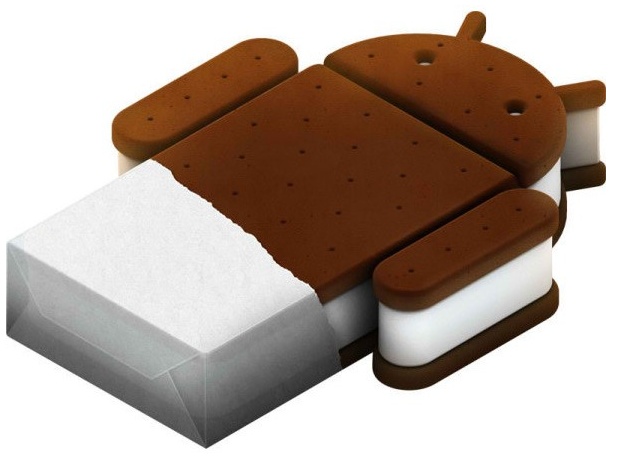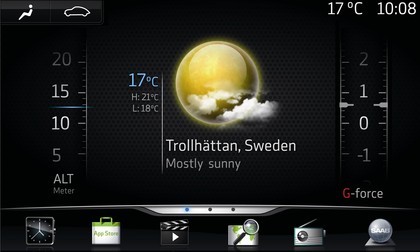The next OS battle: Windows vs iOS vs Android
Microsoft, Apple and Google choose their weapons

Sign up for breaking news, reviews, opinion, top tech deals, and more.
You are now subscribed
Your newsletter sign-up was successful
Steve Jobs calls it the post-PC era. For Google, it's all about the cloud. Microsoft calls it the PC-plus era.
The firms use different terms and have different approaches, but they're talking about the same thing: a radically different kind of computing where the PC is no longer the centre of the universe.
Computing will be on phones, in tablets, in TVs and even in our cars, and the battle will soon begin: iOS 5, Android 4 and Windows 8 in a battle for the very future of computing.
Whose side are you on?
Choose your own adventure
The lines between traditional PCs and mobile devices are getting distinctly blurry. Apple is beginning to merge iOS and OS X, Windows 8 looks awfully similar to Windows Phone and will even run on ARM devices, while the unified codebase of Android 4.0 - bringing tablets and smartphones together in perfect harmony - suggests a merger of Android and the Chrome OS in the not too distant future.
There's more to it than touchscreen phones and tablets, though. iOS has AirPlay for media streaming, Google TV is rumoured to be coming to Android and Microsoft has its Media Center and Xbox Live services.
Sign up for breaking news, reviews, opinion, top tech deals, and more.
With HDMI output, growing games libraries and access to a wealth of online content - including new services such as OnLive, which promises to use streaming to deliver PC-quality gaming without the PC - mobile devices have their eye on your TV and games consoles too.
They're even coming for your cars: Saab has unveiled an Android-based in-car entertainment system, Ford has been sticking Windows into cars for years and Volkswagen's Microbus Bulli concept uses an iPad for key systems including navigation, communication and even climate control.
Using an iPad is rather unrealistic, but there's no reason why firms couldn't use popular smartphones to do something very similar.

ANDROID AUTO: Saab has turned to Android for its in-car system. Could a smartphone dock do the same job?
All of these devices will be linked via the internet. Apple sees the link as a background one, with apps automatically saving and sharing files with one another. Google sees the internet as the place where software actually lives. And Microsoft sees it as a way to share with traditional desktop applications.
Whichever vision you share, though, you can be sure of one thing. It's a trap.
Locked in
Firms don't just want to sell you a single bit of kit any more. They want to sell you an ecosystem - and the more bits of the ecosystem you invest in, the more difficult it is for you to jump ship.
Let's say you've bought a whole bunch of books in Apple's iBooks, your music is from iTunes, your media is stored on iCloud, you use an iPad to stream it to your Apple TV, your stereo is an iPod dock and your iPhone doubles as your sat-nav, the controller for your car's air-conditioning system, your TV remote control and the key for your front door.
Given the expense and the hassle of changing all of those things, are you really going to switch to Android if Google brings out a slightly nicer version of its OS or if Samsung makes a slightly nicer Galaxy Tab? If your smartphone was the brains of your car, would you really buy an iPhone if it meant losing the integration between your existing Android phone and your car? For most of us, the answer would be no.
Apple, Google and Microsoft aren't the only firms doing this, of course. Android firms are stuffing bookshops and video services into their tablets in the hope that once you choose their tablet, you'll stick with their kit forever; Sony's Bravia TVs really want you to use Sony Blu-Ray players and PS3s; and Amazon's Kindle books don't work in others' programs because Amazon wants you to use Kindle ereaders, Kindle PC and smartphone apps and its forthcoming Kindle tablet.
One company in particular knows the importance of lock-in: Microsoft. "The Windows API is... so deeply embedded in the source code of many Windows apps that there is a huge switching cost to using a different operating system instead," Microsoft's C++ General Manager Aaron Contorer wrote back in 1997. "It is this switching cost that has given the customers the patience to stick with Windows through all our mistakes, our buggy drivers, our high TCO (Total Cost of Ownership), our lack of a sexy vision, at times, and many other difficulties."

Contributor
Writer, broadcaster, musician and kitchen gadget obsessive Carrie Marshall has been writing about tech since 1998, contributing sage advice and odd opinions to all kinds of magazines and websites as well as writing more than twenty books. Her latest, a love letter to music titled Small Town Joy, is on sale now. She is the singer in spectacularly obscure Glaswegian rock band Unquiet Mind.